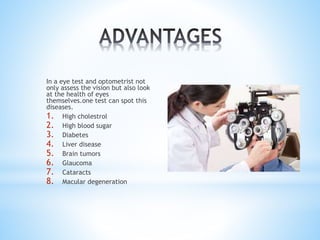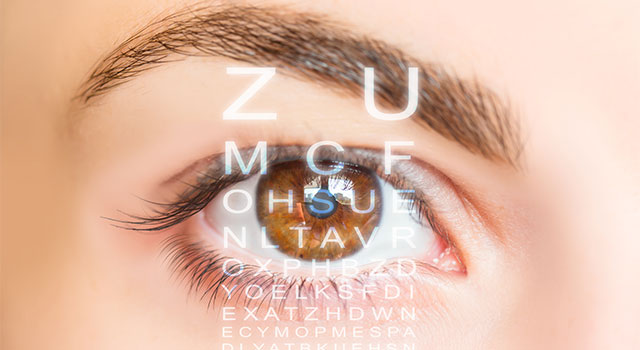Top-Rated Eyecare Near Me: Professional Vision Services Available
Top-Rated Eyecare Near Me: Professional Vision Services Available
Blog Article
Understanding the Different Eye Conditions Treated by Specialized Eye Care Professionals
In the realm of eye care, specialized specialists play a vital duty in detecting and treating a vast variety of eye problems. From common refractive errors that affect vision clarity to age-related conditions that pose difficulties as we expand older, the experience of these experts reaches managing vision-threatening illness and intricate corneal problems. In addition, the complexities of neurological eye problems present one-of-a-kind obstacles that require specialized care. As we start this exploration of the numerous eye problems dealt with by specialized eye treatment specialists, it ends up being obvious that the elaborate web of eye health holds a myriad of fascinating understandings waiting to be revealed.
Common Refractive Mistakes
Refractive errors are usual visual conditions created by a flaw in the eye's ability to appropriately concentrate light, resulting in obscured vision. Astigmatism is characterized by an irregularly shaped cornea, resulting in distorted or obscured vision at all distances. Presbyopia is an age-related problem where the lens sheds its versatility, making it tough to focus on close objects.
These refractive errors can be dealt with via various techniques, including glasses, contact lenses, or refractive surgical treatment. Eye care professionals play a crucial function in detecting and handling refractive errors to help people accomplish more clear vision and improve their lifestyle.
Age-Related Eye Conditions
As individuals age, their eyes might be at risk to a variety of conditions past refractive errors that can influence their vision and total eye wellness. Age-related eye problems are usual and can significantly impact the high quality of life for older grownups. One of one of the most widespread age-related eye problems is age-related macular deterioration (AMD), a disease that triggers main vision loss and can make activities like reading and driving difficult. refractive surgeries in al. Cataracts, an additional usual condition among older individuals, cause clouding of the eye's natural lens, causing obscured vision. Glaucoma, characterized by damages to the optic nerve, is also much more common with age and can cause outer vision loss or loss of sight if left untreated. In addition, presbyopia, a problem where the eye's lens loses adaptability, is an all-natural component of aging and leads to trouble concentrating on close things. Regular eye tests with specialized eye care specialists are essential for early discovery and monitoring of these age-related eye conditions to maintain vision and preserve ocular health and wellness as people expand older.
Vision-Threatening Illness
Vision-threatening conditions encompass a series of significant ocular conditions that have the possible to considerably affect a person's sight and total visual feature. These illness position a risk of long-term vision loss if not promptly detected and treated by specialized eye treatment professionals. Some typical vision-threatening illness include glaucoma, diabetic person retinopathy, age-related macular degeneration (AMD), and retinal detachment.
Glaucoma is a group of eye conditions that harm the optic nerve, typically due to high intraocular pressure, leading to outer vision loss and prospective loss of sight if left unattended. AMD is a modern problem affecting the macula, leading to main vision loss.
Very early discovery, routine eye examinations, and timely intervention are crucial in handling vision-threatening conditions to maintain eyesight and maintain lifestyle. Specialized eye care experts play an essential duty in diagnosing, treating, and taking care of these problems to avoid irreparable vision loss.

Corneal Conditions
Corneal problems include my site a spectrum of problems click resources that influence the clear front component of the eye, understood as the cornea. Treatment for corneal problems differs depending on the particular condition but might consist of medicines, call lenses, or in extreme cases, corneal transplants. Routine eye exams are essential for early detection and management of corneal disorders to maintain vision and eye health and wellness.
Neurological Eye Conditions
Neurological eye problems entail disorders that impact the link in between the eyes and the brain, influencing aesthetic processing and total eye function. These conditions can materialize in various means, impacting vision, eye activities, and even the sychronisation between the eyes. One usual neurological eye problem is optic neuritis, identified by inflammation of the optic nerve causing vision loss, color desaturation, and discomfort with eye activity.
One more significant problem is nystagmus, where the eyes make repeated, unrestrained movements, affecting visual skill and depth assumption. In addition, problems like amblyopia, frequently referred to as "lazy eye," result from unusual visual development in very early youth, leading to lowered vision in one eye.
Neurological eye conditions call for specialized care from specialists like neuro-ophthalmologists that have proficiency in both neurology and ophthalmology. Medical diagnosis commonly involves a thorough eye exam, imaging studies, and collaboration with specialists to resolve the underlying neurological concerns impacting the visual system. Treatment techniques can include medication, vision treatment, or in serious situations, medical treatments to handle these complex problems efficiently.

Conclusion
Finally, specialized eye treatment professionals deal with a large click over here range of eye problems, including typical refractive errors, age-related eye problems, vision-threatening diseases, corneal problems, and neurological eye conditions - refractive surgeries in al. By comprehending these numerous conditions and seeking proper therapy from eye care experts, individuals can keep ideal eye health and wellness and vision. It is very important to focus on normal eye exams and comply with recommended therapy strategies to protect and safeguard one's vision for the future
Report this page